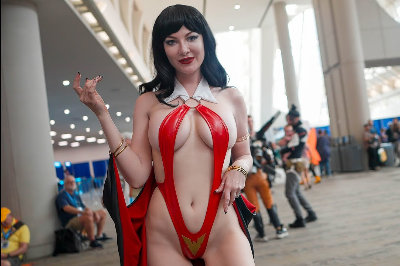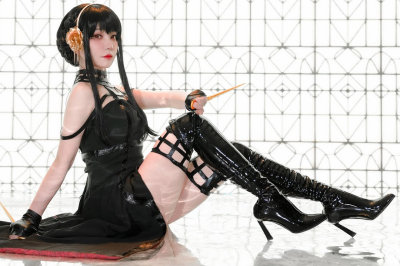THE MOTORCYCLE DIARIES - 2nd Q&A with GAEL GARCIA BERNAL
I hear you had already played Che Guevara on screen once before?
Yes, but it wasn't even a film, it was a TV drama about Fidel Castro and it wasn't very good. But doing that led me to want to do justice to the character, to do it well. It incited me to do it better. It helped me a lot: I already had a lot of knowledge of the character and his whole life, a little feeling about him perhaps, although obviously not as much as after doing THE MOTORCYCLE DIARIES. But it gave me an idea of what my director, Walter Salles was talking about. But the big problem with that production was that it was in English. For me, it was a platform from which to do this film, a pre-rehearsal perhaps.
Che Guevara is such an icon, yet this film deals with his life before he became well-known. Was it a worry that Che's future would inform the film and your performance too much?
Yes, but there was something that the Argentine writer Borges once said that we often used as an alibi when making the film. He said that in the eyes of anyone you can see their past, their present and their future. We tried to tackle THE MOTORCYCLE DIARIES like this: there's a sense that these two young men knew they were already doing something that was grandiose and unheard of - travelling around South America on a motorcycle. They were pioneers in that sense. Their life stories started because of that, because they travelled from Argentina to the United States. We discovered in the process of making it this sense they already had of a later goal. That's what happened when we were doing the film too. We were trying to play the character before their well-known history, but we also had the confidence to go beyond that. The thing about this film is that you can share your experiences with the characters; in fact, that's what the story invites you to do, to share your discovery and whole journey with the character. It's worth it. The story deserves that and you deserve that.
Do you think Che and Alberto already had a strong sense of their legacy?
I think they did, yeah, definitely. They tried to be scientific people. They believed in progress. But this journey was the one that changed them the most. Something similar happened to us while making it. We prepared so much, we prepared for four months on everything: research of Che and the time, of Argentina, Chile, politics...
What research did you do?
We each read on our own. I remember the first book I read was a brief history of Argentina. I wanted to know the character's background as an Argentinian. Then I read three biographies of Che Guevara. We went to Cuba to speak with Che's family and to meet Alberto Granado. We went to Mexico. Rodrigo and I went to Cordoba where they lived as kids. We rode motorcycles three times a week. I learnt some medicine. I spoke with someone who had asthma. I met with a doctor who worked with lepers. We had one Peruvian night every week, and that night we would just discuss Peru. It was like going to a really small university. We watched a lot of films too. We did so many things.
Walter Salles has said that when you filmed at the same leper colony where Che and Alberto had worked, several patients still remembered their visit decades before.
We found out making this film that Che had more friends, more relatives than anyone! Everyone says, yeah we knew Che!
Was this film a personal discovery for you too, travelling around South America?
It was huge. It was something I never thought it was going to be. I had an idea of the impact it would have on me, but it wasn't until we got to the jungle. We settled there for a little bit and everything enveloped us. There was a lot of knowledge, a lot of reaffirmation - things you thought you knew already that still made an impact. It's something that comes naturally: you really don't see the borders, the frontiers of all these countries. They're just administrative - they don't exist, they really don't. The great divide is the division between the European cultures and the indigenous peoples.
Had you travelled a lot yourself before, also felt that distance from home that Che and Alberto felt?
Yes, many times, since I was fourteen, in my schooldays. We would go to a camp in the mountains, to read and write for the whole summer. It was part of the school I went to. I went travelling to New York on my own once, and in Cuba for one year. I try to do it all the time. And I'd always wanted to do the journey across Latin America. Not on a motorcycle though - although I didn't used to be into motorcycles, and now I am. I have a special understanding now of how they work!
Was there a motorbike expert on set with you, to train you and show you the ropes?
Oh yeah, we were with the guy that built the bikes we rode. He made two originals and then three which were Nortons with Suzuki engines. He was unbearable; he spoke about bikes the whole time! No, he was very interesting though, he was intriguing. Very generous. You ask him one question and he tells you a whole story about being on the road with his bike. He fixes motorcycles and sells them to collectors. For collectors, a Norton isn't the ultimate bike though. He had some Triumphs, the're the ones!
What was the most challenging aspect of making this film?
I think it was capturing that time. In some cases, Latin America is worse now, some places are even more decrepit today than they were in the 1950s. Che left Argentina in its most glorious period, whereas we left the country in one of its worst. Also, Chile then was very poor; now it's better.
There's a strong documentary feel, did you include a lot of non-actors you met along the way?
Yes, especially in Peru. It was very much a case of setting up situations with people we met. The only thing was that we had to make sure it felt like 1951, so these people couldn't mention anything later. What's really horrible is that these people can talk about their actual experiences now, but they are similar experiences to what would have happened back then. They are still completely relevant.
Question & Answer Text Copyright Pathé Distribution



